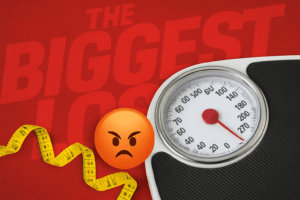Do you want to be on weight loss drugs forever? If your answer is no, please read below. Even if your answer is yes, maybe also read below.
Let’s be honest: weight management is hard. Not because people lack willpower, but because the systems around us—food culture, stress, sleep, hormones, trauma—are complex. So when something like Ozempic comes along, promising fast results, it’s easy to see the appeal. But here’s the truth: Ozempic isn’t a cure. It’s a tool. And like any tool, it works best when it’s used appropriately as part of a bigger plan.
Ozempic (semaglutide) helps people feel full faster and eat less. It mimics a hormone called GLP-1 that slows digestion and improves insulin sensitivity. For some, it’s a game-changer. But for many, it’s a temporary fix. Because while Ozempic can quiet hunger, it doesn’t teach you how to nourish your body, move with joy, or heal your relationship with food.
Weight gain isn’t just about calories. It’s about coping. It’s about comfort. It’s about survival. If we don’t address the emotional drivers—stress, shame, trauma—then no medication can truly solve the problem. Ozempic doesn’t ask why you’re eating. It just makes you eat less.
And when the prescription ends? The habits, the patterns, the pain—they’re still there. That’s why so many people regain the weight. Because the root causes weren’t touched.
And then there’s the risk. Ozempic isn’t without consequences. Some people experience nausea, vomiting, or digestive issues. Others face more serious complications like pancreatitis, gallbladder disease, or even thyroid tumors. There are growing concerns about gastroparesis (stomach paralysis), kidney damage, and vision loss. Nearly 2,000 lawsuits have already been filed in the U.S. over these side effects, with trials expected in 2026. This isn’t fear-mongering—it’s about informed choice. You deserve to know what you’re signing up for.
At Jinjerli, we believe your body deserves more than a band-aid. You deserve a plan that sees you, hears you, and supports you. That means:
- Learning how to eat in a way that feels good and fuels you.
- Moving your body in ways that bring joy, not punishment.
- Understanding your emotional triggers and building tools to cope.
- Creating a lifestyle that’s sustainable, not restrictive.
Ozempic can be part of your journey—but it’s not the destination. You are. Your health, your happiness, your freedom. That’s what we’re here for.
For more reading on the matter see below:
Reference URLs
Mechanism and Use of Ozempic
FDA Ozempic Prescribing Information
Mayo Clinic – Semaglutide (Subcutaneous Route)
Weight Regain and Lifestyle Limitations
The Guardian – Ozempic: What Happens When You Stop Taking It?
Harvard Health – Ozempic for Weight Loss: What You Need to Know
Side Effects and Legal Risks
Drugs.com – Ozempic Side Effects
CBS News – Ozempic Lawsuits Mount Over Alleged Side Effects
Reuters – Ozempic, Wegovy Lawsuits Consolidated for Trial
Gastroparesis and Other Complications
CNN – Ozempic and Gastroparesis: What You Should Know
NIH – GLP-1 Receptor Agonists and Gastrointestinal Side Effects






